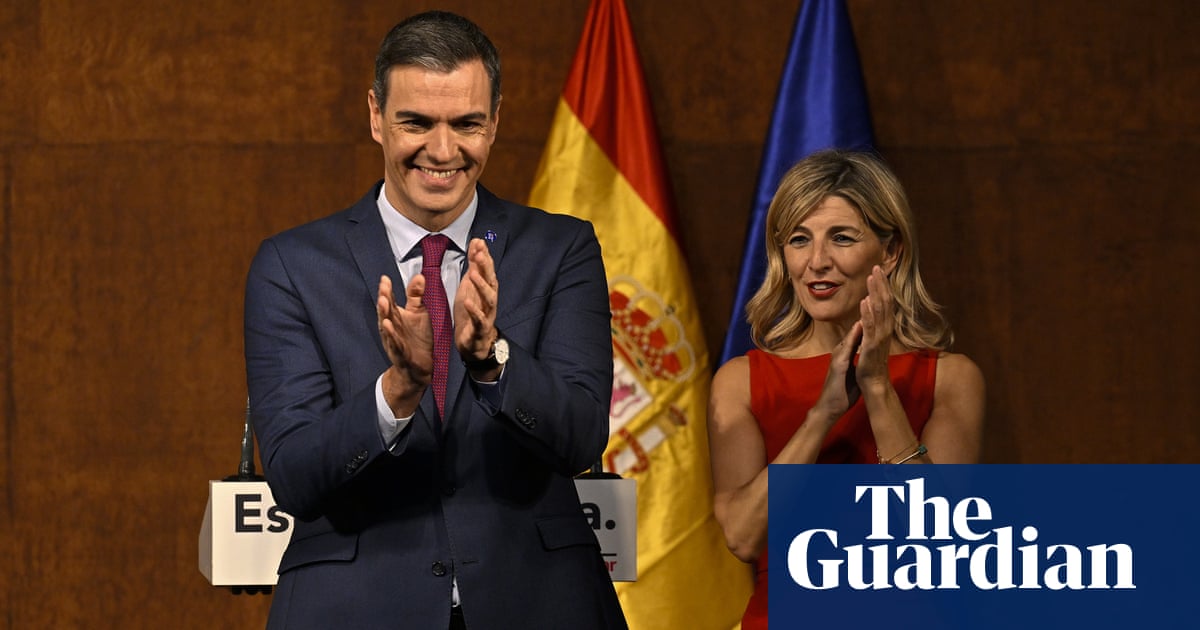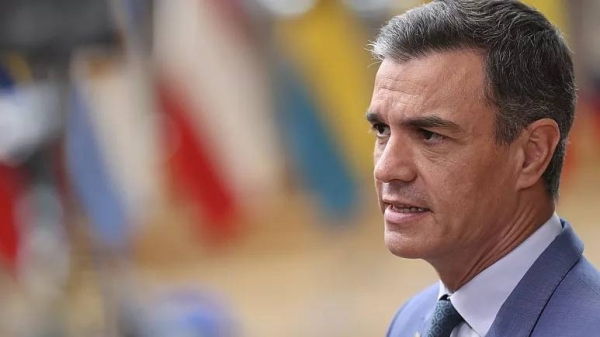
Spain’s ruling socialists and their partners in the leftwing Sumar alliance have pledged to reduce the working week, raise the minimum wage and increase parental leave as part of an agreement designed to win support for a new coalition government.
Spain’s conservative People’s party (PP) narrowly beat the socialists, led by the acting prime minister, Pedro Sánchez, in July’s inconclusive general election, but it has failed to attract the necessary backing to form a government.
Sánchez, who has been prime minister since 2018, is now best placed to put together a new administration. To do so, however, he will need to attract the votes of two Catalan separatist parties, which are making their support conditional on a controversial amnesty for all those involved in the failed, unilateral and unlawful bid for regional independence six years ago.
Sánchez made no direct mention of the amnesty when he appeared on Tuesday afternoon to sign the 48-page coalition document with the Sumar leader, Yolanda Díaz, who is caretaker deputy prime minister and an acting labour minister.
Instead, the pair promised to reduce Spain’s working week from 40 hours to 37.5 by 2025, raise the minimum wage to 60% of the average wage and extend parental leave from to 16 to 20 weeks.
They also pledged to focus on equality, put the environment at the centre of policymaking through initiatives such as swapping planes for trains for journeys of less than two-and-a-half hours, and to finally make good on their promise to repeal parts of the “gag law” that limits public gatherings and freedom of expression.
Sánchez, who hailed the deal as “an agreement for a new, progressive coalition government”, emphasised his administration’s track record on handling the pandemic, its stewardship of the economy and its commitment to the environment. He also attacked previous PP governments for their “neoliberal” policies, cuts and “systemic corruption”.
The acting prime minister’s only nod towards the amnesty issue came when he said his new coalition would strive to make sure that “the path of progress and coexistence is definitively strengthened in our country”.
Díaz, whose Sumar alliance is a platform of leftwing, far-left and green parties, including Podemos, said the deal was a “great and happy day” for Spain.
“It’s an agreement for the people and a commitment to our country,” she said. “We’re going to gain time for living, that’s what politics is for. This legislature will become a legislature that’s about having time to live, to look after ourselves and to be happy. We’ll reduce the working week without reducing wages.”
Díaz said Spain needed to undergo a green revolution and focus on renewable energy sources to avoid becoming “a grey desert”. She said: “What we’re going to do is what we should have done a long time ago, which is making sure that all public policy is climate policy. We’re going to have a green revolution.”
The PP’s leader, Alberto Núñez Feijóo, gave the deal short shrift, once again criticising Sánchez for his reliance on Basque and Catalan pro-independence parties, without whose support, he said, the deal “wasn’t worth the paper it’s written on”.
“Neither the acting prime minister, nor the acting deputy prime minister, nor their parties are going to decide what’s going to happen in Spain,” he said. “That will be up to the parties that don’t even believe in Spain.”
Sánchez and his allies have until 27 November to attempt to secure congress’s backing to form a new government. If they fail, parliament will be dissolved and Spain will return to the polls in January for its sixth general election in nine years.












